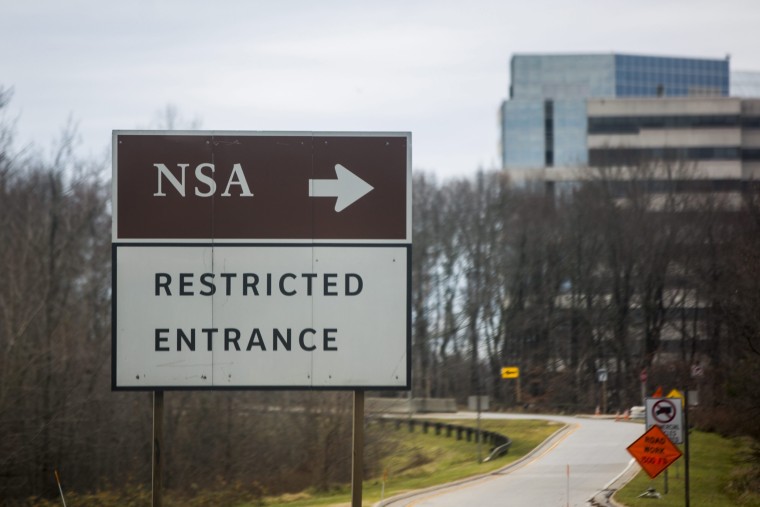In recent years, when it comes to the scope of the national-security state, lawmakers generally limited their choices to expanding federal powers a little or a lot. It made yesterday's vote in the House quite striking -- and a pleasant surprise for many civil libertarians. David Taintor reported for msnbc:
The House of Representatives voted Wednesday to end the National Security Agency's bulk collection of cell phone data from the American public. The USA Freedom Act passed overwhelmingly in a 338-88 vote.... The Senate could take up the bill as early as next week. Congress must act before the section of the Patriot Act that authorizes the collection of telephone records expires on June 1.
Given the prevailing political winds, we don't see many lopsided votes on controversial issues, but here's the roll call on the "U.S.A. Freedom Act" -- its actual name -- on which most Democrats and Republicans were on the same page. (The bill's full title is "Uniting and Strengthening America by Fulfilling Rights and Ensuring Effective Discipline Over Monitoring Act.)
Glenn Greenwald noted that this is the first time since 9/11 that "powers justified in the name of terrorism" would be "reduced rather than increased." It's an important point -- though the House had a similar vote last year, we've come to expect the arrow in this debate to point almost entirely in one direction. But in the face of court rulings and public skepticism, the House felt comfortable taking a bipartisan step in the opposite direction.
Of course, it's not a particularly big step. A New York Times article explained how the House bill is fairly modest: "Under the bipartisan bill ... the Patriot Act would be changed to prohibit bulk collection by the National Security Agency of metadata charting telephone calls made by Americans. However, while the House version of the bill would take the government out of the collection business, it would not deny it access to the information."
Instead, the data would be held by private telecommunications companies, which already keep the records anyway for billing purposes, and which federal agencies could still get access to.
Still, for those hoping to see the government's surveillance powers reduced, yesterday was encouraging. The question then becomes what happens now.
There's ample evidence that House Republicans' appetite for smaller government in this area is vastly greater than their Senate brethren. Senate Intelligence Committee Chairman Richard Burr (R-N.C.) was quick to condemn the House bill yesterday, while Senate Majority Whip John Cornyn (R-Texas) dismissed fears of civil-liberties abuses as overblown.
For many, if not most, Senate Republicans, the principal goal is to leave the status quo in place, at least through the end of the decade. One prominent GOP senator, Foreign Relations Chairman Bob Corker (R-Tenn.), actually suggested this week that he's concerned the NSA doesn't collect enough data.
The resolution won't be easy, but everyone on Capitol Hill seems to realize that there's little time for a lengthy fight: current provisions of the Patriot Act provide that the NSA program expires on May 31 at midnight.
As for the Obama administration, don't look for executive-branch officials to get too heavily engaged, at least not yet. White House officials -- and the NSA - have signed off on the House bill as an acceptable compromise, but in all likelihood, the West Wing probably wouldn't mind the Senate's approach of leaving the status quo intact, either.
